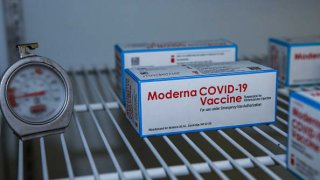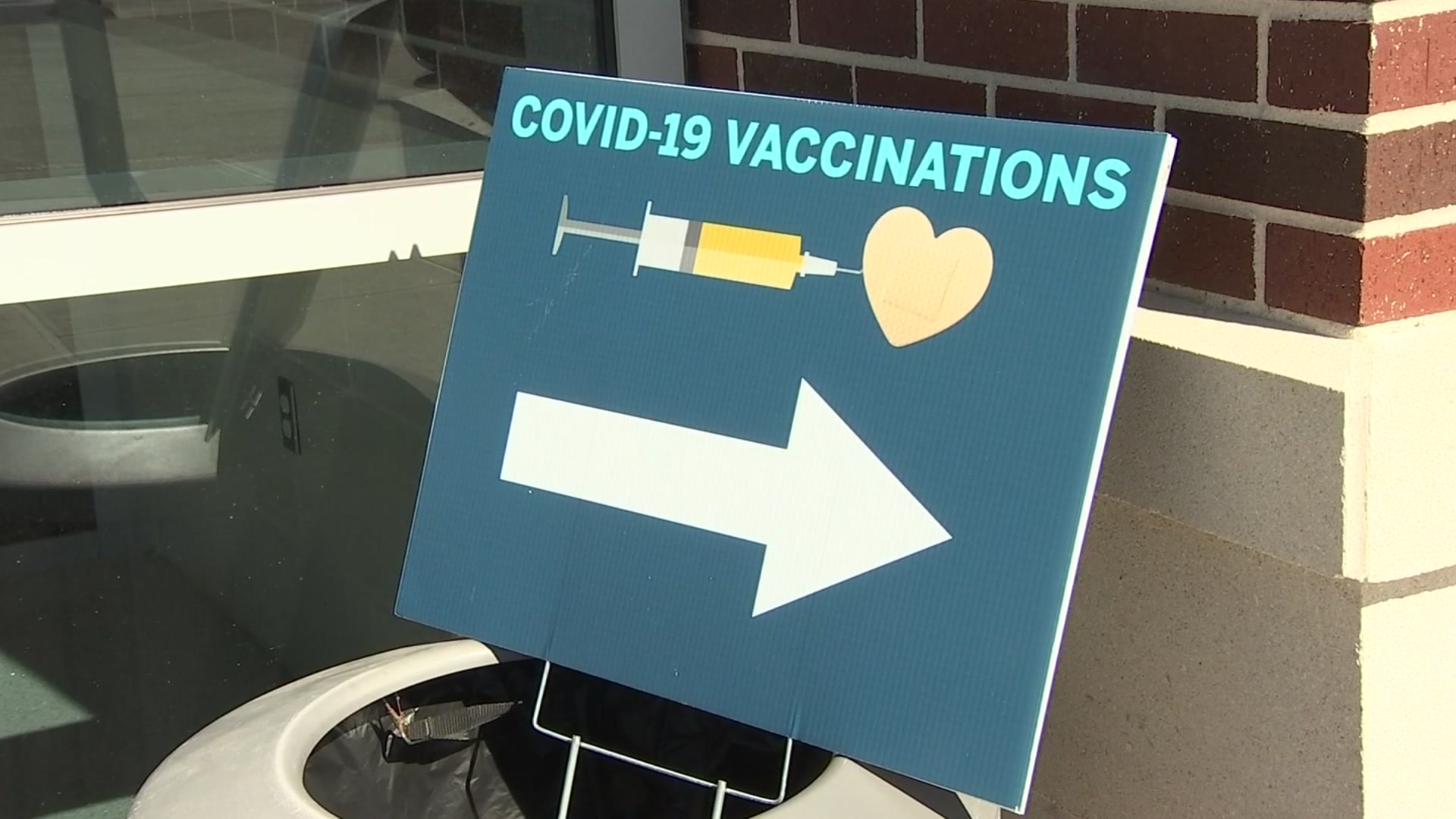
UPDATE (Jan 29, 2021, 12:18 p.m.): Health officials said late Thursday that the Moderna vaccine doses though to have spoiled had not done so, and were still usable. More details here.
Approximately 860 doses of Moderna's coronavirus vaccine have gone to waste after being stored just one degree lower than required in a Vermont hospital, officials said Wednesday.
The doses, which must be kept at eight degrees, were stored in nine degree temperatures at Springfield Hospital, according to Human Services Secretary Mike Smith.
The hospital consulted with the manufacturer, who has the final say on such issues and determined that all doses needed to be tossed due to viability concerns, according to Smith.
Of the vaccines, about 400 were intended for second dose clinics. The Department of Health is conducting a site visit.
Smith gave limited detail about the issue Wednesday, stating he was "just learning about it," before the press conference began.
"I don't have all the details. This is unfortunate because we've had minimal - I mean, minimal wasted doses in this state," Smith said. "Again, we're still getting the details."
Meanwhile, more than 29,000 seniors signed up to get the coronavirus vaccine in Vermont as of Wednesday, the first day clinics began administering them to the age group.
"Every day that goes by we're getting closer and closer to ending the emergency and getting back to normal," Gov. Phil Scott said Wednesday, noting that Vermont is the first state in the country to have more people vaccinated than the number of people who contracted the virus.
Residents over the age of 75 began receiving the vaccine Wednesday at Health Department clinics, Kinney Drugs and other locations around the state. Some seniors have said they made appointments easily while some others are expressing frustration with the registration process.
"Even though the registration went smoothly for most, we also know there were glitches and areas where we can improve," Scott said. "And you can be assured, we're working to make this system work for everyone."
The state announced a website and phone number on Monday for the estimated 49,000 people over the age of 75 to register for vaccination appointments.
Several people reported problems navigating the online registration portal, often getting repeatedly bounced back to the start of the sign-up process, the Burlington Free Press reported.
Vermont will be reaching out to a select group of people who experienced the registration and vaccination process to get their opinions on how the process can be improved, according to Human Services Secretary Smith.
"We plan to continue to use these systems for the remainder of the vaccine rollout, and hope to be able to ramp it up even faster as more vaccines are available," Smith said.
Once the state vaccinates that age demographic -- which is estimated to take about five weeks -- officials will begin scheduling people over the age of 70, then 65, respectively, as well as those with underlying health conditions.
Vermont recorded 942 cases this week, about a 200 case reduction from last week, and the state's seven day case rate slowed down as well.
People ages 75 and older begin signing up to get vaccinated against COVID-19 Monday and can continue to do so over the next six weeks, officials announced Friday. The vast majority of the appointments were made on the first day registration opened.
Eligible people who have not yet registered can go online to the Vermont Health Department's website or call the registration call center at 855-722-7878.
In total, the state has administered over 55,000 doses, which equates to over 44,000 Vermonters who've either received a first dose, or a second dose of the vaccine.
Scott noted that during a meeting between the National Governors Association and the new Biden-Harris Administration, there was consensus among governors with regard to their most dire needs for effective vaccine distribution.
"What we need more than anything else is clarity on production numbers, and the timeline for increasing doses," Scott said. "Having that information will make a huge difference as to when and how to scale up our programs."
In addition to promising weekly calls of that nature with the governors, Scott said the Biden-Harris Administration committed to a three week, consistent supply of the vaccine with a 16% increase over that time period.



